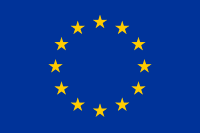Campaign for direct elections to the European Parliament
 |

|
| Title: | Campaign for direct elections to the European Parliament |
| International Organization: | European Union |
| Active: | No |
| From: To: | 1967 - 1972 |
| Promoters: | Union of European Federalists |
| Supporters: | |
| Aim: | Direct elections to the European Parliament |
Why
The European election, which was foreseen by the community treaties, attempted to meet a clear need to involve the European citizens in an integration process which proceeded in a technocratic manner, and therefore called into question the principle of the democratic legitimacy. Direct election was not linked to an automatic strengthening of the powers of the European Parliament (that was why it was easier to overcome the resistance to its achievement), but it would give rise to an extremely strong dynamic in that direction, linked to the formation of a European party-political system and the necessity to respect the commitments made in the European election campaign. In essence, the European election would open the way for federal developments through the assumption of a permanently constituent role on the part of the European Parliament.
The Campaign
The campaign for the European election – conducted by UEF in close collaboration with the European Movement, whose president between 1968 and 1972 was the former president of the Commission of the EEC Walter Hallstein (1901-1982) – was carried out without interruption with the undertaking of various initiatives aiming to mobilise public opinion. The most notable of which include: the “Frontier” action, promoted by the German federalists; the European Democratic Front, promoted by the French federalists; the proposed bill of popular initiative (signed by 65,000 with authenticated signatures) for the direct election of Italian representatives in the European Parliament, presented to the Senate in 1969 by the Italian MFE led by Mario Alberini (1919-1997); the demonstrations of thousands of people, organised together with the JEF, and called counter summits, in Rome in June 1967, in the Hague in December 1969 and in Paris in October 1972, in conjunction with the conferences of heads of state and the governments of the community countries held in these cities.
Background
The idea of establishing a European assembly and directly electing its members was first advocated by the congress of Europe held at the Hague in the early May 1949 and adopted by paragraph 3 of article 21 of the treaty establishing the ECSC. The same idea appears in article 38 of the EDC treaty as well as in article 13 of the Statute drafted by the Ad Hoc Assembly. Once the treaties of Rome establishing the EEC and the Euratom were drafted, no wander that article 138 of the former and article 108 of the latter accepted the principle and added that the assembly would work out projects intended to have the assembly directly elected on the basis of a common procedure. The European Parliamentary Assembly immediately appointed a Commission to draft a "Convention" - to be ratified by the member states - and to spell out the rules regarding the European election. This convention was adopted by the European Parliament on May 17 1960 and sent to the Council of Ministers on June 20 1960.
Source: Sergio Pistone, Uef newsletter – special edition – 60 years of UEF
Luigi V. Majocchi, The campaign for the recognition of the European suffrage, in I movimenti per l'unità europea, 1954-1969, Sergio Pistone (a cura di)
